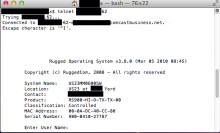Private crypto key in mission-critical hardware menaces electric grids
A private encryption key embedded into widely used mission-critical routers could be exploited by hackers to attack electric substations, railroad switches, and other critical infrastructure, security researchers have warned.












































































